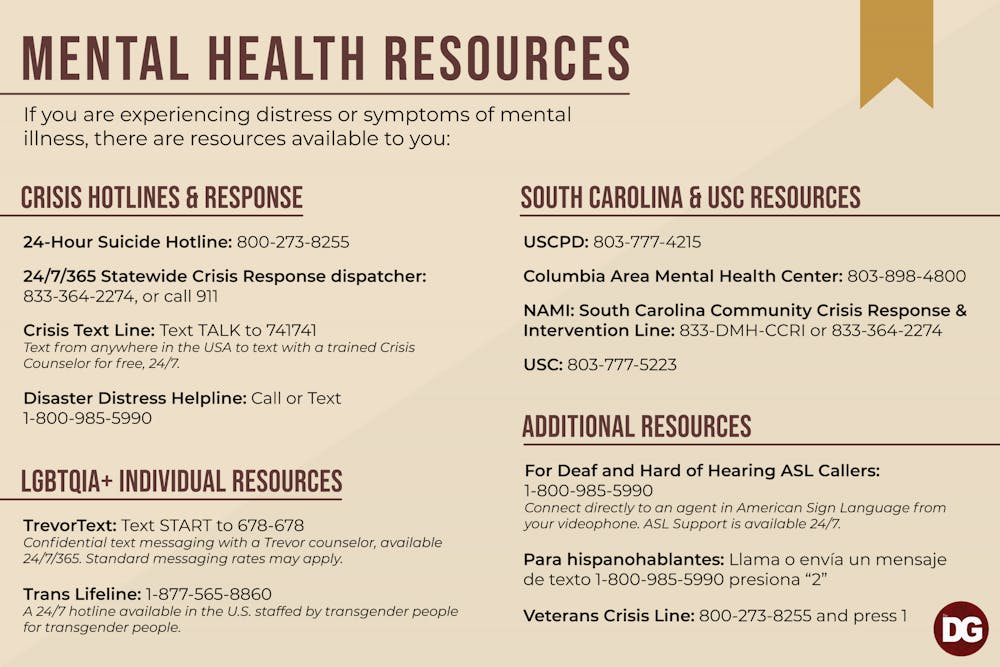Today's media, especially television shows and movies, have negatively portrayed mental health and suicide, often romanticizing it.
The topic of mental health, especially recently, has been a popular side storyline in many television shows and movies, such as bipolar disorder in "Shameless" or the trauma portrayed in "Perks of Being a Wallflower." But sometimes the mental illnesses of these characters are made out to be more dramatic than they are in reality, which is damaging to these communities because it boils their illness down to a set of dramatized behaviors that don't reflect their reality.
In 2007, Jay Asher published "Thirteen Reasons Why," a book about character Hannah Baker's suicide and the 13 reasons she did it. It follows Clay Jensen listening to her 13 tapes and discovering why she committed suicide. The book became widely popular among young adult readers and was adapted to TV and released by Netflix in March 2017.
The first season of the show focuses on the original plot from the novel, but the show has vast differences from the book. The Netflix series made Hannah Baker's suicide far more theatrical than in the book, showing her slitting her wrists in a bathtub, while in the book, she overdoses. Why change this detail?
Watching someone take their own life could be triggering to viewers, even if it's television. Netflix received backfire from the almost three-minute, graphic suicide scene. Netflix was also under fire for not mentioning to viewers the benefits of seeking help if they are feeling depressed. It even went far enough as to paint therapy in a negative light — Hannah seeks her guidance counselor's help and is faced with scrutiny, which is ultimately her last straw.
This showcases a vengeful suicide, giving a message to the young and impressionable audience that might watch the show that suicide is the only way out and a way to prove to people how much they hurt you.
Suicide is not the only thing romanticized in TV and mass media. Violence associated with mental illness is often romanticized, as well. In "American Horror Story: Murder House," the character Tate Langdon is described as a sociopath and performs a mass shooting at school. Instead of being a hated character by audiences, he is loved and often sexualized. This example of not seeing any repercussions of his actions but instead just being misunderstood and almost poetic can be challenging to viewers struggling with their own mental health.
Television shows and movies do not often show characters with mental illness realistically — never portraying their everyday struggles, or "boring" parts of mental illness, and only showing the most extreme version of their illnesses for the furthering of the plot.
In the show "Grey's Anatomy," character Owen Hunt has PTSD from his time in the military. The show only portrayed the most extreme versions of his PTSD, such as choking his girlfriend in his sleep. This is a very abusive situation and is not always how PTSD manifests. This negatively represents people who have PTSD by providing the public with a preconceived notion that those with PTSD are abusive and dangerous.
Another example can be seen in Big Bang Theory. Sheldon Cooper has symptoms of OCD, but the audience only sees the stereotypical examples, such as having to knock three times on a door. While this kind of behavior can be attributed to OCD, television shows often don't show the emotional stress and struggles of everyday life with OCD. These depictions use the compulsive side of OCD for humor, while completely ignoring the fear associated with these behaviors.
Media has a vital role in how we think. It is crucial as a society to understand that mental illness does not look like one thing and that mental illness does not mean "crazy." As citizens of a global community, we need to break the stigma around mental illness and suicide. We must not accept, and must actively call out, the glamorization of it in our media.
Sept. 5 to Sept.11 was National Suicide Prevention Week. There are multiple mental health resources on campus for students in need.
If you ever need to talk to someone urgently, call the 24-hour National Suicide Prevention Hotline: (800) 273-8255.


